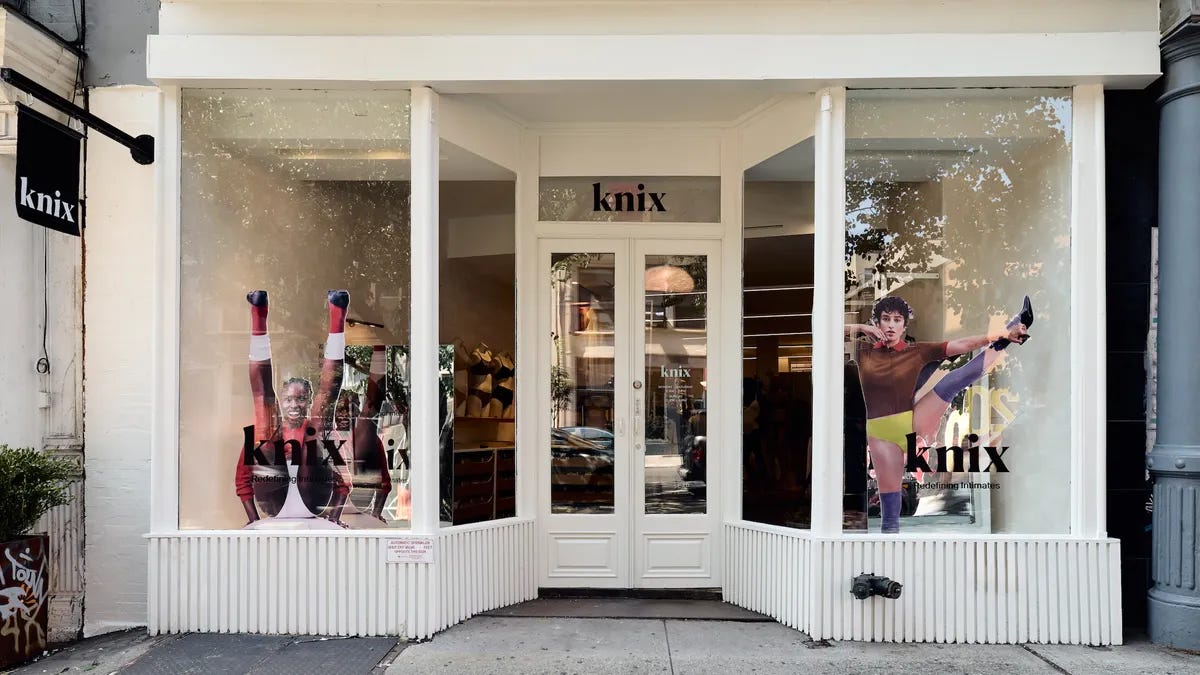This Week in Retail #93
TWIR Bonus Edition
This is a weekly bonus edition of TWIR……Enjoy this one on the house!
Hey Friends,
So apparently, you can buy luxury handbags at Scheels. All over social media I have seen the following this week, although no official statements have been made. Scheels’ core products and the luxury handbags it has recently introduced occupy very different retail spaces.
Scheels is primarily a sporting goods and outdoor retailer, offering items like athletic apparel, footwear, camping and fishing gear, and team sports equipment, with mid-market pricing that appeals to families and active lifestyle shoppers. By contrast, the luxury handbag market is not that. While Scheels’ core products are functional and necessity-driven, luxury goods are typically aspirational, status-oriented items. Strategically, core goods drive Scheels’ regular traffic and sales, whereas this move invokes a boutique, prestige-focused experience that elevates the retailer’s brand and attracts a new, fashion-conscious audience.
Scheels operates in 34 states primarily in the midwest, so this could be a play to address markets that could be considered a luxury ‘desert’, but it does seem out of their core. It’s brave for sure, let’s see how it plays out.
Amazon is making a major grocery push, rolling out same-day perishable food delivery to more than 1,000 U.S. cities and towns, with plans to reach 2,300 locations by the end of 2025. The service lets shoppers order fresh groceries like produce, meat, and dairy alongside nonfood items in a single cart, something Amazon says leverages its logistics network for speed and efficiency.
For Prime members, orders over $25 are free (or $2.99 below that), while non-members can access the service for $12.99 per order. The expansion builds on a 2023 pilot in select cities that showed strong demand, with grocery customers ordering twice as often as those who didn’t add fresh food. In fact, strawberries beat out AirPods as a best-seller during testing.
Amazon says the initiative represents one of its most significant grocery expansions yet, tapping into its temperature-controlled facilities and insulated delivery systems. With over $100 billion in grocery and household essentials sold in 2024 (excluding Whole Foods and Amazon Fresh), this expansion underscores Amazon’s ambition to become a stronger rival to traditional grocery chains.
Brooklyn’s art-world troublemakers, MSCHF, the collective behind viral hits like the Big Red Boots, Jesus Shoes, and collaborations with Tiffany & Co. and Crocs are leveling up. The group just launched Applied MSCHF, a creative agency that will selectively take on client work in marketing, product design, and even architecture.
This isn’t your typical agency rollout. MSCHF has built its reputation on turning stunts into headlines (who else could sell a microscopic handbag for $70K?), and now they’re packaging that playbook for brands bold enough to sign on. The move puts them in the same lane as cultural heavyweights Pharrell Williams (VIRGINIA) and Kendrick Lamar (Project 3), both of whom have recently announced their own creative shops.
Google is making a bigger push into payments by teaming up with Wise, Klarna, Affirm, and others to expand remittances and buy now, pay later (BNPL) options. The company announced it will soon allow Google Pay users to send cross-border payments to India, Brazil, Mexico, and the Philippines through providers like Ria Money Transfer, Xe, and Wise, with Stripe handling processing.
At the same time, Google is integrating BNPL services such as Affirm, Zip, Klarna, and Afterpay directly into Chrome’s autofill, letting shoppers save and automatically apply installment payment options at checkout. The move builds on existing partnerships with BNPL players already available on Google Pay.
By baking payments into its wallet and browser, Google is aiming to remove friction in online shopping and remittances, boosting conversion for merchants and convenience for consumers. Analysts say the strategy reflects a broader race to make transactions as seamless as possible, and a way for Google to strengthen its position against rivals, particularly as competition with OpenAI and other AI-driven challengers heats up.
Knix is making a fresh push into the U.S. market with the opening of a 1,400-square-foot store in New York’s SoHo district. The location at 242 Lafayette St. features dedicated “bars” for bras, underwear, and activewear, plus a section for its teen brand, Kt by Knix. In keeping with a modern retail approach, the store skips a traditional cash desk in favor of mobile checkout.
This marks Knix’s return to U.S. brick-and-mortar after its short-lived 2021 attempt in California. The brand now operates 20 stores—19 in Canada and one in New York—while continuing to build out its retail presence. Founder Joanna Griffiths said SoHo was chosen as the brand’s first permanent NYC location to connect directly with both locals and tourists, noting the company has ambitious expansion plans for New York and the broader U.S. market.
And to wrap for today….Kith made a dramatic return to the runway this month with its Fall/Winter 2025 show, “INSTITUTION,” staged outdoors in New York City’s NoHo neighborhood right outside its newly renovated Lafayette Street flagship. It was the brand’s first fashion show since 2019, and true to form, it shut down the street with a grass-covered runway and a distinctly New York energy. A summer storm just before the show had guests donning clear Kith-branded umbrellas, adding to the atmosphere. The collection, designed by creative director Ronnie Fieg, marked an evolution for Kith, bridging its streetwear roots with elevated tailoring and refined city-ready staples. Looks ranged from fiery sportswear and denim-infused tracksuits to bold leather pieces, logo-driven performance shirts, and polished outerwear that nodded to the spontaneity of urban life.
The show introduced new and expanded product lines, including &Kin, a revived high-end sub-line of elevated Kith classics, and K-Tech, which extends its lifestyle-performance category. Accessories took a star turn with the Suede Monogram Program, Kith’s largest accessory release yet, offering carryalls, crossbodies, belts, and cardholders in suede hues like Stadium, Ink, Incognito, Magma, and Black. Footwear collaborations were another highlight, from a Black Tie Superstar sneaker with adidas to a hand-braided Boston clog with Birkenstock, plus fresh running models and an expanded 8th St Wallabee Collection with adidas Originals and Clarks. The collection also leaned into local pride with sweaters reading “New York to the World” and oversized jackets featuring the Yankees, Knicks, and Giants.
The show carried a strong cultural charge, closing with a surprise performance by Gashi and Jimi Banks. It also introduced new talent on the runway, with 19-year-old Henry Samuel—son of Heidi Klum and Seal—making his U.S. runway debut in a light-wash denim outfit as his family looked on from the front row. More than a spectacle, the event signaled a milestone for Kith: a clear shift from being primarily a logo-driven streetwear brand to a more sophisticated lifestyle label that can live at the intersection of fashion, sportswear, and luxury design, while staying true to its New York roots.
Have a great day…..




